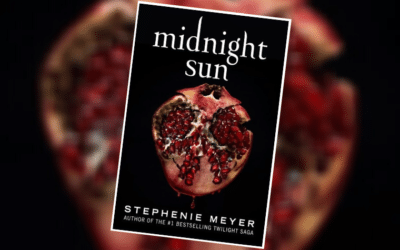
Margot meets Robert. He’s older, thirty-something. She’s not yet twenty-one. She likes their banter via text. He’s clever; she pines. Her skin is flawless. When Robert takes her on a date, Margot is mercurial, vacillating between liking Robert, pitying him, and detesting him. She fucks him, hating the way he finger bangs.
Yeah, right, she thought, and then he was on top of her again, kissing her and weighing her down, and she knew that her last chance of enjoying this encounter had disappeared, but that she would carry through with it until it was over. When Robert was naked, rolling a condom onto a dick that was only half visible beneath the hairy shelf of his belly, she felt a wave of revulsion that she thought might actually break through her sense of pinned stasis, but then he shoved his finger in her again, not at all gently this time, and she imagined herself from above, naked and spread-eagled with this fat old man’s finger inside her, and her revulsion turned to self-disgust and a humiliation that was a kind of perverse cousin to arousal.
“Cat Person,” published in The New Yorker, became the first short story sensation since “Turn of the Screw” went viral in 1898. I shared links to “Cat Person” and to lots of post-game analysis/hot takes on social media, and so did many of you guys. We related to it. We saw ourselves in Margot, and it gave us a rare view into sex—bad sex, unwanted sex—from a female perspective that felt right for this moment in time.
The author, Kristen Roupenian, deftly puts us in the head of Margot, who is so mercurial in her attraction to Robert, over-analyzing every move and creating stories for herself about Robert’s motivations. Deeply in Margot’s head, we only know the feelings of Robert that she assigns to him.
Margot wavers on her attraction, but in the end, she accept sex she really doesn’t want to be having. She never tells us she felt she was in any danger, even though there is always sense of menace. She believes that Robert would not like to be laughed at. Anyone who has had sex has had moments of attraction that quickly turn to “ugh.” When it comes to sex, it is very easy to move from “turned on” to “Can you please finish so I can go home and read?”

Grace meets Aziz. He’s older, thirty-four. She not yet twenty-five. She likes their banter via text. He’s clever; she pines. She wears good outfits. When Aziz takes her on a date, Grace is mercurial, vacillating between not liking the wine to loving their meal enough to photograph it. She lets Aziz go down on her, hating the way he finger bangs.
She told babe that at first, she was happy with how he reacted. “He said, ‘Oh, of course, it’s only fun if we’re both having fun.’ The response was technically very sweet and acknowledging the fact that I was very uncomfortable. Verbally, in that moment, he acknowledged that I needed to take it slow. Then he said, ‘Let’s just chill over here on the couch.’”
I believe Grace. I believe that she had a bad time and did not know how to get out of it. I believe that Grace felt Ansari was preventing her from getting out of it. What I don’t accept is the point the author is trying to make, which is that Grace was wronged in such a manner that we need a public shaming of Aziz Ansari. I’m saying that as a woman and as a human being.

It’s been about a week since Katie Way published the article “I went on a date with Aziz Ansari. It turned into the worst night of my life” to babe.net.
She announced it with this tweet:
I talked to a girl who says she went on a date with @azizansari in an exclusive for @babedotnet. She told me, “It was by far the worst experience with a man I’ve ever had.” I believe her. #TimesUp #MeToo #AzizAnsari https://t.co/p7q0fjSsh0
— Katie Way (@k80way) January 13, 2018
It popped up on my timeline when DeRay Mckesson re-tweeted her. I noted that Way used the #MeToo and #TimesUp tags. The implication was clear. She wanted us to conflate her piece with those of The New York Times and other reporting on predatory men like Harvey Weinstein, Charlie Rose, Matt Lauer, Andy Savage, etc. (How upsetting that there is an etc that can be applied here and we can think of countless other men to add.) I had those awful men in my mind as I clicked the link to her article. “What in the world did Aziz Ansari do to this woman!”
After I read it, I was left with, “Hmmm, I just don’t know.” A week later, I’m still trying to figure it out, even though my original instinct holds true. This woman, Grace, had a bad night but it doesn’t rise to the level the author wants it to.
Way is fighting outside her weight class—and has since made much of the the conversation about her own youthful hubris and career goals rather than what happened to Grace, her subject.
There has been plenty of hand-wringing and scolding by feminists and our our allies. There have been so many articles written, and I’m a little bit annoyed with myself for adding one more. “No one is saying Aziz is Harvey!” “This will kill #MeToo!” “No one is lumping this in with Woody Allen!” But let’s be honest here. The author threw out dots and people were more than happy to connect them to the worst predators out there.
Do you know how many women have had to fake periods or drunkenness to weasel out of a sexual encounter without setting off a male rage spiral? "Just saying 'no'" is not always an option. That's the whole fucking problem.
— Lauren Duca (@laurenduca) January 14, 2018
Yes. Absolutely, there are times when women feel danger. But if we want nuance in the discussion, this cannot be the polar choice women have to accept. Either have amazing sex or silently endure because a man might harm you? With the timing of this tweet, Duca is implying that this woman—this Grace—felt in danger, that it was reasonable for her to feel that Ansari might harm her. But the truth is, even if Grace felt fear, that does not mean she was ever in peril. It is a problem that some men cannot be rejected without resorting to violence or verbal abuse against their partner, but most encounters don’t end up that way. Women can prepare themselves without embedding hysterical fear into every intimate moment. It’s not discounting abuse and the dangers some men present if we teach young women to use their voices and not just their non-verbal cues to get what they want—or to get out of what they don’t want.
We can say “not this particular man” without being tarred with the “not all men” brush. I can stand up for women and still be a human being who considers the feelings of all involved. Do I care about Harvey Weinstein’s feelings? Not a lick. Do I care about Ansari’s? I’m not the devil if I consider them. I believe we can have a discussion on the low-end of the spectrum, the choices women make in murky situations, without outing the men involved, while at the same time, when it comes to the higher-end of the spectrum, saying those fuckers can burn.

I’m not an Aziz stan. Yes, I like him. I love Tom Haverford (food rakes!). I don’t like Master of None. I only tell you this because the author has re-tweeted this comment: “Most people’s morality only extends to ‘Do I like this person or not.'” Again, you throw out dots, I’m going to connect them.
Like “Cat Person,” Way’s article has created lost of post-game discussion of varying viewpoints. I read this (“Aziz Ansari Is Guilty. Of Not Being a Mind Reader.” from Bari Weiss) and think, YES! But then I read this (“Aziz, We Tried to Warn You” from Lindy West) and think, ALSO YES.
We are in a “You’re dead to me” time in our culture. I disagree with you on this one point, so you are dead to me. We want perfect allies, and we will never get them. Instead of calling out bad behavior and asking for acknowledgment and reconciliation, we throw the baby out with the bathwater. I’m guilty of it.
I think the best thing that can come out of this Ansari saga is that we can start to say,”I hear you. I don’t agree with you. I would like to hear from you again.” I’m forty-four. I guarantee that a twenty-four-year-old Amy might have a different take. I want younger women to demand what they want. I want them to be mindful in how they get it.
I have my own #MeToo moment, the details I don’t want to divulge but know it was serious enough to involve the police. If the Ansari incident is related to my experience, I need military-level binoculars to get there. When Duca says “that’s the whole fucking problem,” I cannot agree. The problem is not that simple. So many things are wrapped into sex. We have power dynamics. We have the fear of rejection. We have how humans interact (not just how men/women interact). There is the fear of hurting someone else. Seeking pleasure. Wanting to please. Hopefulness. Mixed signals. Expectations. Enjoying fingers in the mouth. Hating fingers in the mouth. Self doubt. Feeling ugly. Feeling pretty. Feeling sexy. Shyness. The search for connection. Guilt. And on and on.

During the movie, he didn’t hold her hand or put his arm around her, so by the time they were back in the parking lot she was pretty sure that he had changed his mind about liking her. She was wearing leggings and a sweatshirt, and that might have been the problem. When she got into the car, he’d said, “Glad to see you dressed up for me,” which she’d assumed was a joke, but maybe she actually had offended him by not seeming to take the date seriously enough, or something. He was wearing khakis and a button-down shirt.
One of my favorite sayings comes from the political blogger, Atrios. “The stupid, it burns.” They way we talk about most things in this country is really dumb. It’s hard to have an honest discussion especially when we have an entity like Fox News, who can outrage at the edges like nobody else. I embrace this conversation about sex, pleasure, and enthusiastic consent. For those using this moment to speak out, I agree that our misogynistic culture impacts how we date. I agree that something doesn’t have to be illegal to be wrong. But then we have this:
Just a reminder that Aziz Ansari’s career is fine. Mike Tyson’s career is fine. Sean Penn’s career is fine. Woody Allen’s career is fine. Kobe Bryant’s career is fine. Stop talking about how women are “ruining these men’s careers.” We’ve seen very few careers actually ruined.
— Sophie Ellman-Golan (@EgSophie) January 17, 2018
For the people in the cheap seats! Ansari is not Mike Tyson, a convicted rapist. Our rape culture is real, but being on the same spectrum doesn’t mean these two situations are the same. They are very, very different. The proper use of nuance adds light. It doesn’t muddy.
**This “I hear you” offer does not apply to Matt Damon. He admitted that he should have shut up when it came to #MeToo but until he denounces Casey Affleck, he can pound sand.




